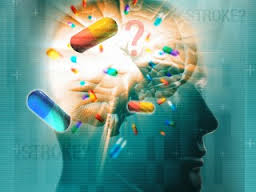Antipsychotics Revisited
Back in July, I wrote a blog here and an article for Mad in America titled “
Case Against Excessive Use of Antipsychotics”  about Robert Whitaker’s lecture at the NAMI Convention that my son Max Maddox and I attended. In the blog I talked about how shocked and confused we and others in the audience were about Whitaker’s argument that antipsychotics could cause more harm than good and that they should be used selectively and perhaps not at all. The response to that blog was overwhelming, with people from all sides of the argument weighing in—not just about antipsychotics, but about alternative treatments, how we talk about the experiences of psychosis, the use of the term “illness,” and the financial interest of drug companies that are making billions from these drugs. There were stories from people who said that their medication saved them and from those who said going off them returned them to the self they had once been. Many said that we each need to make our own choices based on what works for us and I certainly agree. There is no cookie cutter approach. But we need accurate information to make the right decisions. That can be hard to come by in a climate that has become so politicized and polarized.
about Robert Whitaker’s lecture at the NAMI Convention that my son Max Maddox and I attended. In the blog I talked about how shocked and confused we and others in the audience were about Whitaker’s argument that antipsychotics could cause more harm than good and that they should be used selectively and perhaps not at all. The response to that blog was overwhelming, with people from all sides of the argument weighing in—not just about antipsychotics, but about alternative treatments, how we talk about the experiences of psychosis, the use of the term “illness,” and the financial interest of drug companies that are making billions from these drugs. There were stories from people who said that their medication saved them and from those who said going off them returned them to the self they had once been. Many said that we each need to make our own choices based on what works for us and I certainly agree. There is no cookie cutter approach. But we need accurate information to make the right decisions. That can be hard to come by in a climate that has become so politicized and polarized.
But there is what we might consider good news. In terms of the issue of anti-psychotics, it seems important factions are reaching some consensus. In August NIMH director Thomas Insel wrote that “results from several studies have suggested that these medications (antipsychotics) may be less effective for the outcomes that matter most to people with serious mental illness: a full return to well-being and a productive place in society.” Some called it a victory for mental health reformist. I prefer to think of it as a victory for those of us in the trenches of illness who want to make informed choices.
 But I can only imagine how those who have been on antipsychotics for years and their families feel about such findings which also indicate that antipsychotic medications cause brain damage and worsen prospects for recovery over the long-term, and how they feel when they learn that studies by NIMH and APA thirty-six years ago (1977) were indicating that antipsychotics weren’t the miracle medication some believed.
But I can only imagine how those who have been on antipsychotics for years and their families feel about such findings which also indicate that antipsychotic medications cause brain damage and worsen prospects for recovery over the long-term, and how they feel when they learn that studies by NIMH and APA thirty-six years ago (1977) were indicating that antipsychotics weren’t the miracle medication some believed.
So what are those who develop schizophrenia and psychosis to do? In 2009, NIMH began a research study called RAISE ( Recovery after initial schizophrenic episode Initiative) which calls for intervening immediately upon first diagnosis, systematically incorporating options include medications, psychosocial treatments, and rehabilitation, including teaching patients and families how to manage the disease. According to Insel testing is being conducted in community health centers in 23 states. http://www.nimh.nih.gov/about/director/2013/network-solutions.shtml. Hopefully it won’t take thirty-six years to determine the effectiveness.
In addition, much is being written about Open Dialogue, begun in Finland by Jaako Seikkula. It requires early intervention and family and community-based therapy that involves dialogue with patients and the people most affected by their mental health crises. Seikula recommends intervention within days of psychotic onset. Training for the program is now offered in the US by Mary Olsen of the University of Massachusetts at The Institute for Dialogic Practice in Massachusetts. Recent, the Vermont Department of Mental Health awarded a $15,000 grant to Burlington Howard Center for a pilot project — the first of its kind in Vermont — that will train staff in Open Dialogue. Medications aren’t ruled out but are not a focus for treatment. Though success rates are promising, further investigation needs to take place.
But what are those who have been on antipsychotics for years and who are chronically and severely ill to do? Certainly neither Open Dialogue nor RAISE are options. What does good treatment look like for them, and where are they to go to get it? Do they remain on their antipsychotics and simply stay the course? Is it possible for them to taper off and will doing so restore them to well-being and a productive place in the community or shatter them completely?
Fortunately Max has never been on antipsychotics for an extended time. After I wrote that first blog, many emailed to ask what he is doing about medication and how he’s doing. To find out. visit his blog: www.walksonthemargins.com



